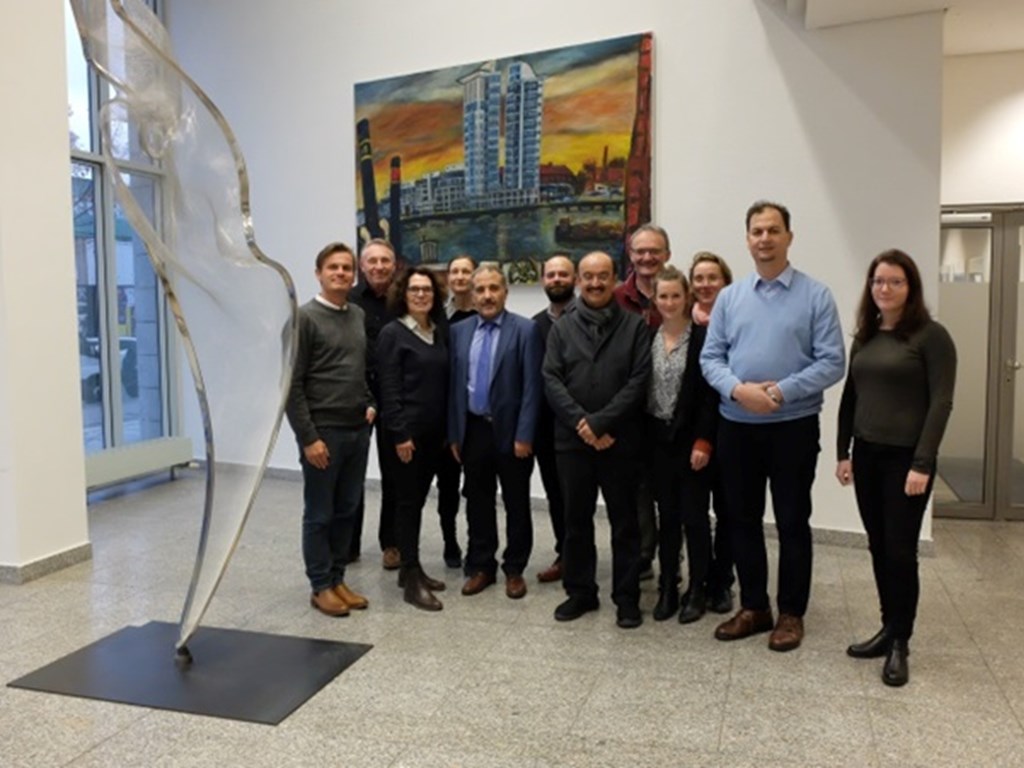The project will inform decision-makers of the advantages and disadvantages associated with low-carbon options when evaluating future development trajectories.
SUNEX assesses existing supply and demand systems for food, water and energy. The purpose of the project is to develop more efficient and sustainable solutions for food, water and energy supply in urban regions.
In all four SUNEX pilot cities, Vienna, Bristol, Berlin and Doha, sustainable development scenarios were shown to decrease energy demand and to be viable options for achieving ambitious city-level climate action plans.
The project offers decision-makers a set of policy guidelines that produce “win-win” outcomes to fight climate change and make urban food, water and energy systems more efficient.

Consortium members meet in Doha
SUNEX’s policy guidelines identify six interlinked policy areas where an integrated approach can produce co-benefits, offering guidance on the appropriate strategies for each policy area and outlining the type of co-benefits that could be produced.
The strength of SUNEX’s policy guidelines is that instead of focusing on trade-offs between climate change goals and optimisation goals, they offer co-benefit solutions that address multiple issues.
These ‘win-win’ scenarios pursue an integrated approach to policy, attaining the policy objectives for climate change mitigation delivering net zero neighbourhoods, whilst simultaneously improving urban health and wellbeing.



